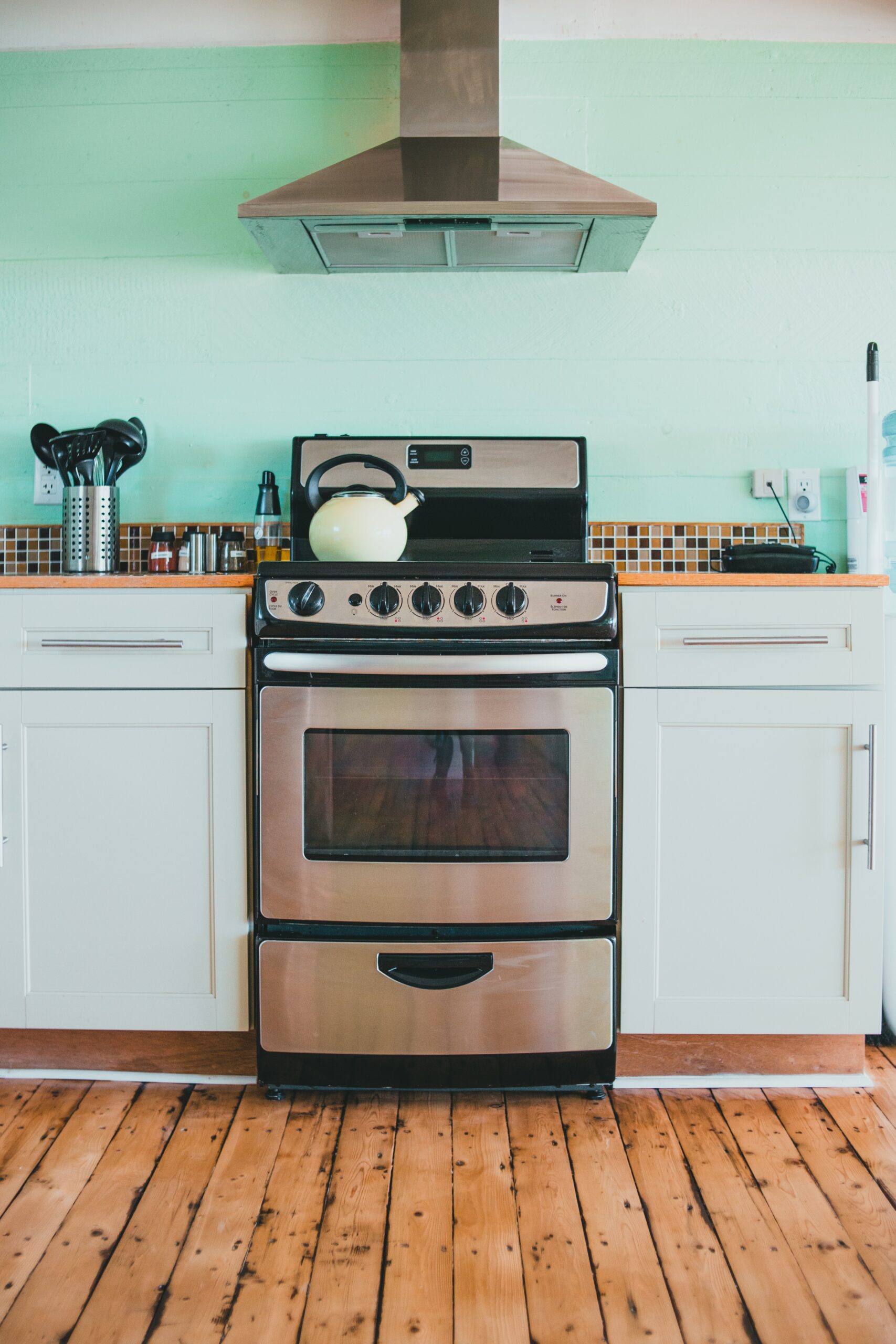Looking to find the perfect cookware for your electric stove? Look no further! In this article, we will explore the best types of cookware that are compatible with an electric stovetop. From understanding the safest options to seeking the highest quality materials, we have got you covered. Whether you are an experienced chef or a novice in the kitchen, selecting the right cookware is essential for a seamless cooking experience on your electric stove. So, let’s dive in and discover the best cookware options that will enhance your culinary adventures!
Best Cookware For Electric Stove
Factors to consider for cookware on an electric stove
When it comes to selecting the best cookware for an electric stove, there are several important factors to consider. The type of cookware you choose can greatly impact your cooking experience and the overall performance of your electric stove. Here are some key factors to keep in mind:
Heat conductivity
Heat conductivity is a crucial factor to consider when choosing cookware for an electric stove. Electric stoves typically have a slower heat response compared to gas stoves, so it’s important to choose cookware that heats up quickly and distributes heat evenly. Cookware with good heat conductivity ensures that your food cooks evenly and prevents hot spots that can lead to uneven cooking.
Size and weight
The size and weight of the cookware are also important factors to consider. Electric stoves have weight limits, and using cookware that is too heavy or oversized can strain the heating elements and affect the stove’s performance. Additionally, heavy cookware can be difficult to handle and maneuver, making tasks like flipping food or pouring liquids more challenging.
Material
The material of the cookware plays a significant role in its performance on an electric stove. Different materials have varying levels of heat conductivity, durability, and maintenance requirements. It’s essential to choose a material that not only works well with electric stoves but also fits your specific cooking needs and preferences.
Versatility
Versatility is another factor to consider when selecting cookware for an electric stove. You may want to choose cookware that can be used for various cooking methods such as searing, sautéing, frying, or baking. Opting for versatile cookware allows you to expand your culinary horizons and make the most out of your electric stove.
Maintenance
Maintenance is an important consideration for any type of cookware, including those used on electric stoves. Different materials have varying cleaning and care requirements. It’s important to choose cookware that you can easily clean and maintain, as this will prolong its lifespan and ensure optimal performance over time.
Budget
Your budget is always an important consideration when purchasing cookware. The price of cookware can vary greatly depending on the material, brand, and quality. Set a budget range that works for you and explore options that offer the best combination of performance and affordability.
Compatibility with electric stoves
Not all cookware is suitable for electric stoves, so it’s essential to ensure compatibility. Electric stoves require a flat and even surface contact with the heating element for efficient heat transfer. Cookware with warped or uneven bottoms can result in uneven cooking and may even damage the electric stove.
Heat distribution
Heat distribution is closely related to heat conductivity and plays a crucial role in the cooking process. Cookware with good heat distribution ensures that your food cooks evenly and consistently, avoiding undercooked or burnt spots. Consistent heat distribution leads to better control over the cooking process and more delicious results.
Durability
Durability is a significant factor to consider when choosing cookware for an electric stove. Electric stoves can be harsh on cookware due to their slower heat response and the potential for uneven heating. Opting for durable cookware ensures that it can withstand the demands of electric stovetop cooking and maintain its performance over time.
Non-stick properties
Non-stick properties are desirable for many home cooks, as they make cooking and cleaning easier. However, not all non-stick coatings are suitable for use on electric stoves, as the intense heat can damage or degrade the coating. It’s important to choose cookware with a reliable and durable non-stick surface that can withstand the heat of an electric stove.
Materials that work best on electric stoves
Now that we have considered the important factors for cookware on electric stoves, let’s explore the various materials that work best in this setting. Each material has its own unique properties and advantages, so it’s worth understanding their characteristics to make an informed decision.
Stainless steel
Stainless steel is a popular choice for cookware on electric stoves due to its excellent heat conductivity and durability. Stainless steel cookware heats up quickly and distributes heat evenly, ensuring consistent cooking results. It is also non-reactive, making it safe to cook acidic or alkaline foods. Stainless steel cookware is easy to clean and resistant to rust and corrosion. However, stainless steel alone may not provide optimal heat distribution, so look for stainless steel cookware with an aluminum or copper core for better performance on electric stoves.
Cast iron
Cast iron cookware is known for its excellent heat retention and even heat distribution. It heats up slowly but holds onto heat for longer periods, making it ideal for slow cooking or braising. Cast iron cookware is extremely durable, and with proper seasoning and maintenance, it develops a natural non-stick surface. However, cast iron is heavy and can be challenging to handle, especially for those with physical limitations. It also requires regular seasoning and careful maintenance to prevent rust and keep the cooking surface in good condition.
Copper
Copper cookware offers superior heat conductivity, providing precise temperature control and quick, even heating. This makes it a popular choice for professional chefs and experienced home cooks. Copper cookware also has an attractive aesthetic and can enhance the visual appeal of your kitchen. However, copper cookware can be expensive and requires regular polishing to maintain its luster. It can also react with acidic foods, leading to undesirable taste and potential health risks if the cookware is not lined with a non-reactive material.
Aluminum
Aluminum cookware is lightweight and known for its excellent heat conductivity. It heats up quickly and distributes heat evenly, ensuring efficient cooking. Aluminum cookware is affordable and widely available, making it a popular choice for many home cooks. However, bare aluminum can react with acidic or alkaline foods, resulting in off-flavors and discoloration. To overcome this, many aluminum cookware options have a non-reactive coating, such as stainless steel or non-stick surfaces.
Carbon steel
Carbon steel cookware shares many similarities with cast iron, including excellent heat conductivity and durability. It is lightweight and versatile, making it suitable for a variety of cooking methods. Carbon steel cookware is also less expensive than cast iron, making it a more budget-friendly option. However, similar to cast iron, carbon steel requires seasoning and proper maintenance to prevent rust and maintain its non-stick surface. Additionally, carbon steel can rust if not dried properly after washing.

This image is property of images.unsplash.com.
Top Picks For Electric Stove Cookware
Pros and cons of stainless steel cookware on electric stoves
Stainless steel cookware offers several advantages when used on electric stoves:
Excellent heat conductivity
Stainless steel cookware with an aluminum or copper core provides excellent heat conductivity, ensuring even heat distribution for consistent cooking results.
Durable and long-lasting
Stainless steel cookware is highly durable and resistant to rust, corrosion, and damage. It can withstand the demands of electric stovetop cooking and last for many years.
Non-reactive and safe
Stainless steel is a non-reactive material, ensuring that your food does not interact with the cookware. This makes it safe for cooking acidic or alkaline foods without altering the taste or causing health concerns.
Easy to clean
Stainless steel cookware is easy to clean, either by hand washing or using a dishwasher. It does not require special cleaning agents or techniques, making maintenance hassle-free.
Despite these advantages, stainless steel cookware also has some drawbacks to consider:
Can be expensive
High-quality stainless steel cookware with an aluminum or copper core can be more expensive compared to other materials. However, the investment is worth considering its durability and long-lasting performance.
May require additional oil/fat for cooking
Stainless steel cookware does not have non-stick properties on its own, so you may need to use some additional oil or fat to prevent food from sticking. This can be a minor inconvenience for those looking for a completely non-stick cooking experience.
Pros and cons of cast iron cookware on electric stoves
Cast iron cookware offers several advantages when used on electric stoves:
Even heat distribution
Cast iron cookware heats up slowly but distributes heat evenly, ensuring that your food cooks consistently. This is especially beneficial for slow cooking methods and dishes that require gradual heat.
Excellent heat retention
Cast iron’s ability to retain heat allows for long, slow cooking and keeps food warm even after removing it from the heat source.
Versatile for different cooking methods
Cast iron cookware can be used for various cooking methods, including frying, searing, baking, and even grilling. Its versatility makes it a valuable addition to any kitchen.
Long-lasting and durable
Cast iron cookware is incredibly durable and can last for generations with proper care. With regular seasoning and maintenance, it develops a natural non-stick surface that improves over time.
Despite these advantages, cast iron cookware also has some drawbacks to consider:
Requires seasoning and proper maintenance
Cast iron cookware needs to be seasoned and properly maintained to prevent rust and keep the cooking surface in good condition. This involves applying a thin layer of oil and heating it to create a protective coating.
Heavy and can be difficult to handle
Cast iron cookware is known for its weight, which can make it challenging to handle, especially for individuals with physical limitations. The weight also adds to the overall demands on the electric stove.

This image is property of images.unsplash.com.
Pros and cons of copper cookware on electric stoves
Copper cookware offers several advantages when used on electric stoves:
Superior heat conductivity
Copper cookware has exceptional heat conductivity, allowing for precise temperature control and quick, even heating. This makes it a favorite among professional chefs and experienced home cooks.
Precise temperature control
The excellent heat conductivity of copper cookware enables chefs to make precise adjustments to the cooking temperature, making it ideal for delicate dishes that require careful heat management.
Quick and even heating
Copper cookware heats up rapidly and distributes heat evenly, providing consistent cooking results and minimizing the risk of hot spots.
Appealing aesthetic
Copper cookware has a beautiful and timeless aesthetic that can enhance the visual appeal of your kitchen. It adds an elegant and sophisticated touch to your culinary experience.
Despite these advantages, copper cookware also has some drawbacks to consider:
Expensive and requires regular polishing
Copper cookware is generally more expensive compared to other materials due to its desirable heat conductivity properties. Additionally, copper requires regular polishing to maintain its shine and prevent tarnishing.
Reactive with acidic foods
Unlined copper cookware can react with acidic foods, potentially altering the taste and causing health concerns. To avoid this, it’s important to choose copper cookware that is lined with a non-reactive material such as stainless steel or tin.
Pros and cons of aluminum cookware on electric stoves
Aluminum cookware offers several advantages when used on electric stoves:
Excellent heat conductivity
Aluminum is known for its outstanding heat conductivity, ensuring quick and efficient heating. It distributes heat evenly, allowing for consistent cooking results.
Lightweight and easy to handle
Aluminum cookware is significantly lighter compared to other materials such as cast iron or copper. Its lightweight nature makes it easier to handle, reducing the strain on the user.
Affordable and widely available
Aluminum cookware is often more affordable compared to other materials, making it accessible to a wide range of consumers. It is also widely available in various styles and configurations.
May react with acidic or alkaline foods
Bare aluminum cookware can react with acidic or alkaline foods, resulting in off-flavors, discoloration, or even slight changes in the nutritional value of the food. To overcome this, many aluminum cookware options have a non-reactive coating, such as stainless steel or non-stick surfaces.
Can warp or scratch easily
Aluminum cookware is relatively soft and can dent, warp, or scratch easily if not handled with care. It’s important to avoid using metal utensils and opt for silicone or wooden utensils instead.

This image is property of images.unsplash.com.
Pros and cons of carbon steel cookware on electric stoves
Carbon steel cookware offers several advantages when used on electric stoves:
Great heat conductivity
Carbon steel cookware has excellent heat conductivity, similar to cast iron. It heats up quickly and distributes heat evenly, ensuring efficient and consistent cooking results.
Lightweight and versatile
Carbon steel cookware is lighter compared to cast iron, making it more manageable in the kitchen. Its versatility allows for various cooking methods, including frying, sautéing, and even baking.
Durable and long-lasting
Carbon steel cookware is highly durable and can withstand high temperatures and intense heat. It is designed to last for many years with proper care.
Inexpensive
Carbon steel cookware is generally more affordable compared to other materials such as stainless steel or copper. It provides excellent performance at a lower price point.
Requires seasoning and proper maintenance
Similar to cast iron, carbon steel cookware needs to be seasoned and properly maintained to prevent rust and maintain its non-stick surface. Regular seasoning creates a natural non-stick surface that improves with time and use.
Can rust if not dried properly
Carbon steel cookware is prone to rust if it is not dried thoroughly after washing. It is important to hand dry the cookware immediately to prevent any moisture from causing rust.
Special considerations for electric stoves
When using an electric stove, there are a few additional considerations to keep in mind when selecting cookware:
Avoid non-flat bottom cookware
Electric stoves require cookware with flat and even bottoms to ensure efficient heat transfer. Cookware with warped or uneven bottoms may lead to uneven cooking and potentially damage the electric stove.
Select cookware with an aluminum or copper core
Cookware with an aluminum or copper core provides better heat conductivity and distribution, which is beneficial for electric stoves with slower heat response.
Ensure a snug fit with the electric burner
Choosing cookware that fits snugly on the burner helps maximize heat transfer and prevents energy wastage. A proper fit also ensures more precise temperature control during cooking.
Avoid extended preheating
Electric stoves typically have slower heat response times compared to gas stoves. Avoid extended preheating to prevent overheating the cookware and wasting energy.
Use cookware with thicker bottoms
Cookware with thicker bottoms helps distribute heat more evenly and prevents hot spots. Thicker bottoms also provide better stability and minimize the risk of warping.
Recommended types of cookware for electric stoves
Based on the considerations mentioned above, here are some recommended types of cookware for electric stoves:
Stainless steel with aluminum or copper core
Stainless steel cookware with an aluminum or copper core offers excellent heat conductivity, even heat distribution, and durability. Look for options that have a thick, impact-bonded base for optimal performance on electric stoves.
Cast iron with smooth enameled bottoms
Cast iron cookware with a smooth enameled bottom provides even heat distribution and retention without the need for seasoning. The smooth enamel surface prevents potential scratching on the electric stove surface.
Tri-ply stainless steel with aluminum core
Tri-ply stainless steel cookware consists of an aluminum or copper core sandwiched between two layers of stainless steel. This construction provides excellent heat conductivity and distribution, making it ideal for electric stoves.
Hard-anodized aluminum
Hard-anodized aluminum cookware is lightweight, durable, and has excellent heat conductivity. It is also non-reactive and relatively resistant to scratches, making it a suitable choice for electric stoves.
Carbon steel pans
Carbon steel pans offer great heat conductivity, durability, and versatility for electric stoves. They are lightweight, easy to handle, and can be used for various cooking methods. Proper seasoning and maintenance can create a natural non-stick surface.
Conclusion
Choosing the best cookware for an electric stove requires careful consideration of several factors. First, determine your cooking needs and preferences, including the types of dishes you frequently prepare and the cooking methods you prefer. Next, consider your budget and select cookware that offers the best combination of performance and affordability. Ensure compatibility with electric stoves by choosing flat-bottomed cookware with good heat conductivity and distribution. Prioritize durability, maintenance requirements, and non-stick properties based on your personal preferences. With these considerations in mind, you’ll be well-equipped to select the perfect cookware that enhances your electric stove cooking experience and delivers delicious results every time.

